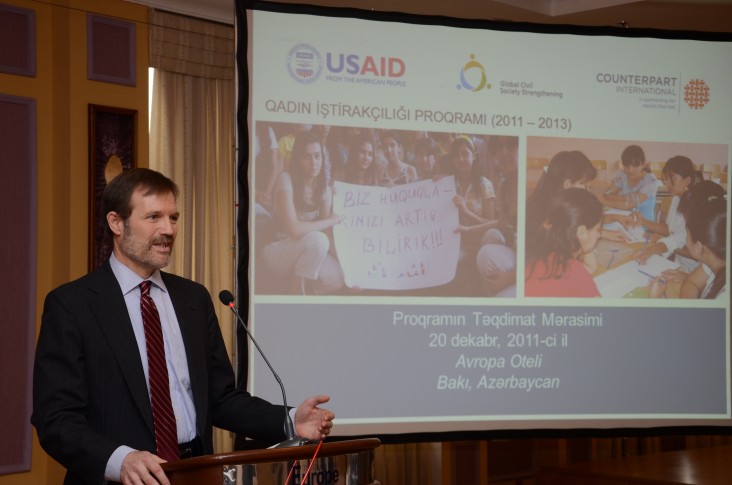
For Immediate Release
Nearly 60 stakeholders representing international organizations, local NGOs, Embassies and government entities gathered together to launch the Women’s Participation Program funded by the U.S. Agency for International Development (USAID).
The Women’s Participation Program seeks to improve the status of women in Azerbaijan by raising public awareness on issues that affect women and empowering more women to participate in decision making processes. Implemented by Counterpart International, the two-year program will fund six women’s rights NGO coalitions in projects that aim to:
- increase public awareness of Convention on Elimination of All Forms of Discrimination against Women (CEDAW) and women’s issues;
- enhance the capacity of local civil society organizations to engage in policy dialogue with the Government on issues affecting women;
- increase the number and influence of women leaders in decision making processes;
- issue policy recommendations to the Government of Azerbaijan for improving implementation of CEDAW, including proposing legislative initiatives to improve the status of women.
“Promoting women's rights is critical to achieving long-term, sustainable development,” said Michael Greene, USAID/Azerbaijan Mission Director, at the launch ceremony. “We believe that the Women’s Participation Program will play an important role in cooperating with the Government of Azerbaijan’s efforts to promote women’s rights and gender equality in all spheres of socio-economic development of the country.”
The event brought together representatives of local civil society organizations, Parliament, the State Committee on Family, Women and Children’s Affairs, Council on State Support to NGOs, USAID as well as other international humanitarian/grant making organizations, such as OSCE, EU, UNFPA and others.







Comment
Make a general inquiry or suggest an improvement.